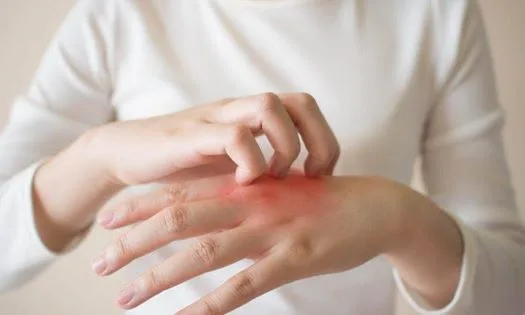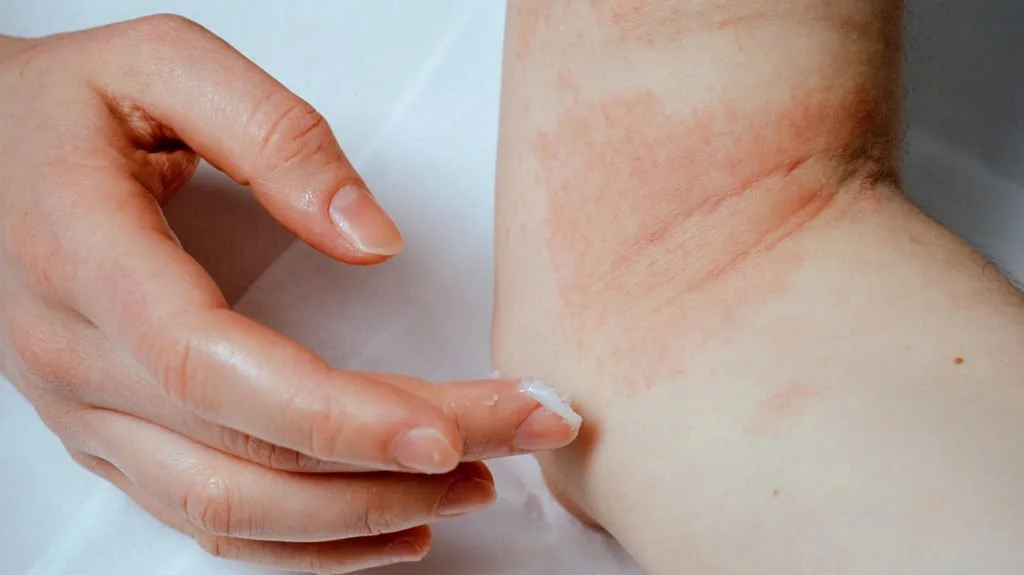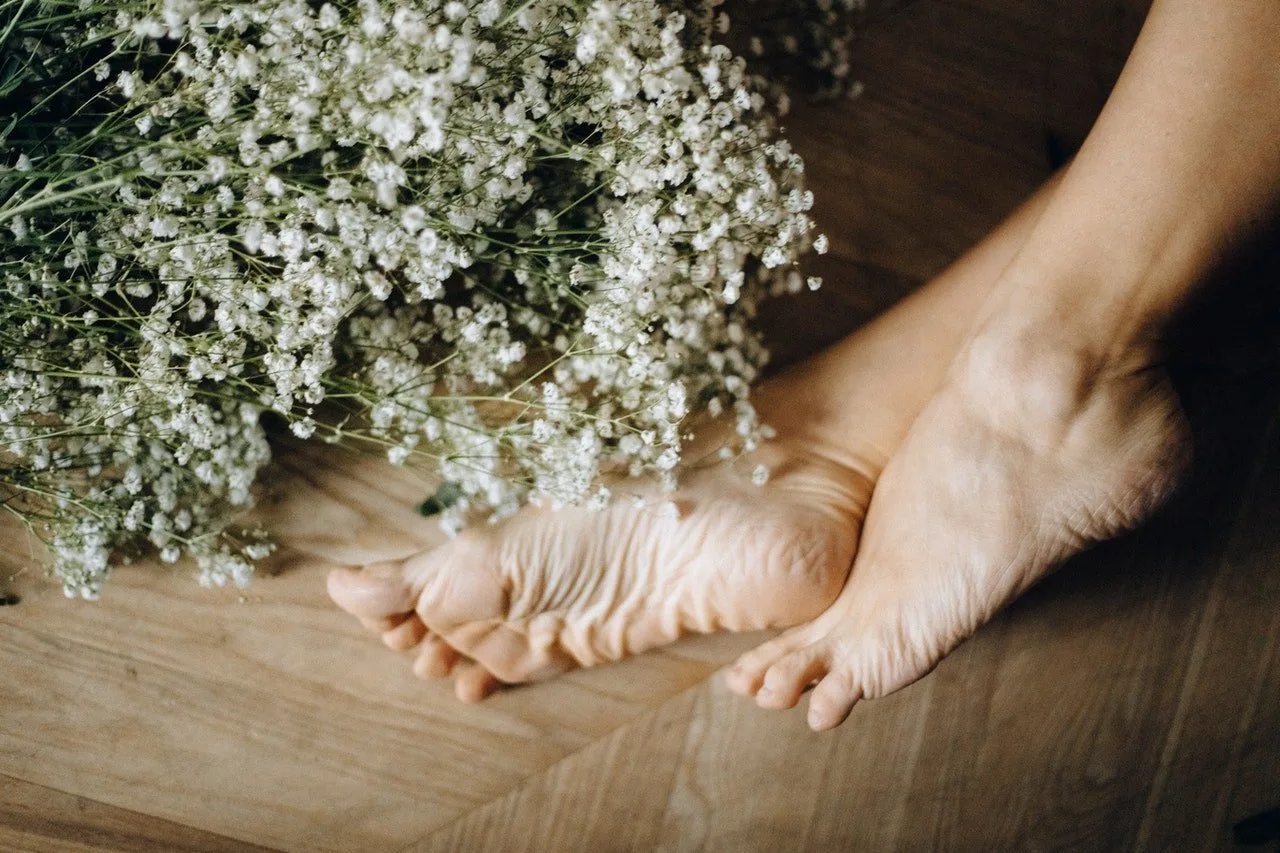With the onset of spring in the Southern hemisphere more and more outdoor activities will start to take place. However, the prospect of warmer weather can be daunting for those with chronic skin conditions, as spring and summer are times when there are many elements that can cause allergic skin reactions in the environment — moulds, pollens, plant and animal substances (1).
Examples of chronic skin conditions include chronic fungal infections such as tinea, atopic dermatitis (eczema), dermatitis, skin cancers, and keratosis. People with these conditions may need to take special precautions.
Why is the chronic skin condition psoriasis, in particular, so debilitating for sufferers?
Psoriasis is a skin condition caused by abnormal activity of the immune system (2). Unlike normal skin, where the cells take about a month to mature and are shed unnoticed, in patients with psoriasis cells mature within five days, causing them to heap up into characteristic patches or ‘plaques’ of thick, red skin, covered with white or silvery scales.
Some people with psoriasis may see an improvement in their condition in the summer months because of the greater availability of sunshine, a natural ultraviolet light (3). Also, people usually wear fewer layers of clothing and expose more areas of skin by wearing short sleeves, short pants, and swimsuits during summer. However, overexposure to sunlight light can also trigger a flare-up of psoriasis symptoms, so it’s best to start with very low exposure and build it up over several weeks. Don’t forget to use sunscreen on areas of the body without psoriasis to prevent skin damage.
Beware of chlorine

Orawan Pattarawimonchai/Shutterstock
Chlorine may cause irritation and can further dry out the already over dry skin that normally accompanies psoriasis. However, many people find that pool water helps to soften and clear crusty, hard areas and flaking.
Try to avoid very warm water as heat can increase itching and irritation. The best way to avoid this irritation is to shower as soon as possible after swimming and to apply moisturiser.
Handy tips for managing psoriasis in the heat
Spring and summer can make you anxious about showing more bare skin when you have psoriasis(4). Here are some tips for making the most of balmy days:
- Stay cool: Heat and sweat can make your psoriasis worse, especially on your face and scalp. Air conditioning can spare you from sweating, but it also tends to dry out your skin. If you spend a lot of time in air conditioning, moisturize once or twice a day.
- Wear loose, breathable clothing: If you want to hide a flare-up, or you recently had a treatment called phototherapy, cover-up. Wear loose-fitting, sun-protective cotton clothing.
- Prevent insect bites: Bites from mosquitoes and other insects can aggravate psoriasis. To protect yourself, wear long-sleeve shirts with long pants, and stay indoors at dusk when insects are most active. Citronella candles can help keep mosquitoes away.
- Don’t stress: Anxiety worsens symptoms. Take advantage of things that can relieve stress and do things that help you relax.
Medication is available
Psoriasis treatments aim to stop skin cells from growing so quickly and to remove scales. Options include creams and ointments (topical therapy), light therapy (phototherapy), and oral or injected medication (5).

Ulrich Zillmann/ Getty Images
Which treatments you use depends on how severe the psoriasis is and how responsive it has been to previous treatment.
The bottom line
Don’t let psoriasis ruin important moments in your life – choose better skin health! Ask your GP or dermatologist for more information about new, dual-combination, topical treatments of choice for mild-to-moderate full body psoriasis, so you too can enjoy life to the full.
You can learn more about psoriasis here.
References
- Health Direct. Summer skin rashes. [12 Aug 2020]. Available from: www.healthdirect.gov.au/summer-skin-rashes
- DeNovo Medica. Issues and Answers. Topical therapy for psoriasis. 2019;Apr:1-2.
- National Psoriasis Foundation. FAQs: Psoriasis in spring, summer, fall and winter. [12 Aug 2020]. Available from: www.psoriasis.org/about-psoriasis/faqs/weather
- WebMD. Summer Tips for Psoriasis.[12 Aug 2020]. Available from:www.webmd.com/skin-problems-and-treatments/psoriasis/psoriasis-in-spring-and-summer
- Mayo Clinic. Psoriasis Diagnosis and Treatment. [17 Aug 2020]. Available from: www.mayoclinic.org/diseases-conditions/psoriasis/diagnosis-treatment/drc-20355845

Who is the author?
Dr. Lushen Pillay is a Specialist Dermatologist and Dermatologic Surgeon at Helen Joseph Hospital. He is the Head of Dept at Helen Joseph Hospital and he is also a lecturer at Wits University, Department of Dermatology where he teaches medical students and registrars specialising in the field of dermatology. He finished his undergraduate degree at the University of Pretoria, and then completed the fellowship in Dermatology, FC Derm (SA) and also a Masters (MMed) in Dermatology through Wits University.
Through his specialisation, he has won various research awards and has a special interest in psoriasis and facial aesthetics. He has completed numerous courses and congresses in Aesthetic medicine and also attends international congresses on a regular basis. He runs workshops and trains other practitioners in General Dermatology and Aesthetic Medicine.



![women [longevity live]](https://longevitylive.com/wp-content/uploads/2020/01/photo-of-women-walking-down-the-street-1116984-100x100.jpg)










